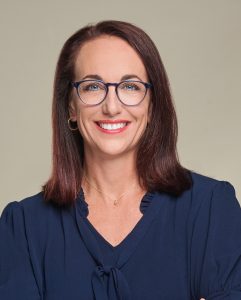By Cheri L. Canon, MD
Navigating a career in medicine is complicated. Although information is just a Google search away, seeking advice from the Internet is an inefficient path to success, fraught with misinformation, and void of the wisdom of the experienced. Navigating the development of a physician leader requires more finesse. That’s where mentorship becomes an indispensable tool. But it is more than that. Mentoring is a relationship anchored in trust.
Why should I be a mentor?

The successful mentor guides their mentee based on their own experiences, successes, and most importantly, failures. They help anticipate the pitfalls. However, it is a two-way street, and while both have responsibilities, both also benefit. In fact, reverse mentoring is now a well-recognized concept. It requires both individuals to be open to suggestion and, therefore, embrace vulnerability. This is where trust is paramount. In a recent experiment, Dr. Geraldine McGinty, President of the American College of Radiology and one of the most recognized radiology leaders in social media, “turned over the keys” to her Twitter account for a day to her mentee. A powerful experience made possible by the trust between the mentoring pair.
How do I find a mentor?
Look to those you admire and ask. Nothing is more flattering than being asked for advice. Set ground rules together and be clear with expectations.
Seek those who are in positions to which you strive and demonstrate qualities for which you aspire. Seek those who are completely different from you and avoid the destructive (but often more comfortable) echo chamber.
How do we ensure success?
You don’t always, but you should strive for it. The relationship should be driven by the mentee, as they are the one primarily seeking advice. The mentee can share their challenges and the obstacles they are facing. The mentor should be respectful of their mentee, listen more than talk, and always, always maintain confidentiality. But remember, some relationships are not ideal. If that is the case, the mentoring pair should amicably part.
What next?
Have a cadre of mentors with various skill sets. Diversity is key (always). Evolve your mentoring team as your professional career develops. Some mentors will be lifelong; others only for certain stages.
A note of caution: While the #MeToo movement has shined an important light on an unacceptable culture that has survived for far too long, it may have an unintended consequence (1). Members of opposite sexes may be reluctant to enter mentoring relationships. How to address this unfortunate outcome? Fearlessly engage in open dialogue. Educate those around you to create a culture of inclusivity and transparency. Again, it is about trust.
Mentoring is a lifelong gift. It can be a road to fulfillment for both the mentor and mentee.
- Tim Bower. The #MeToo Backlash. HBR. Sept-Oct 2019.
Dr. Canon is professor and chair of UAB Radiology and holds the Witten-Stanley Endowed Chair in Radiology. She is the president of the Society of Chairs in Academic Radiology Departments and serves on the ABR Board of Governors.


